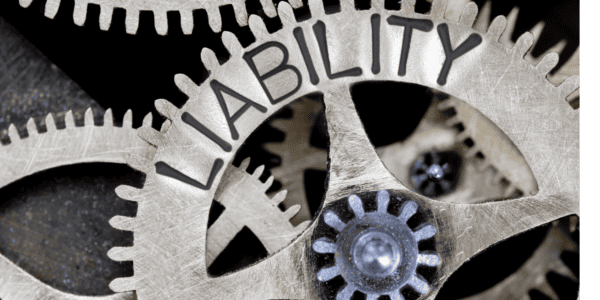Limited liability is a fundamental concept for new business owners to grasp. In this post, we cover exactly what limited liability means and why it’s such an important consideration. Let’s get started.
Key takeaways
- Limited liability protects personal assets, limiting financial responsibility to shareholders’ investments in the company.
- Directors may face personal liability for wrongful trading if they ignore insolvency risks while operating the business.
- Companies limited by guarantee rely on guarantors, who commit to cover debts if the organization becomes insolvent.
What is limited liability?
Limited liability is a legal principle that separates the personal assets of business owners (shareholders) from the financial obligations of the company they own. In other words, if your business fails or has legal action taken against it, it limits the extent to which you are personally held responsible for the debts and liabilities incurred by the company.
From the moment you register a limited company at Companies House, it becomes a legal ‘person’ in its own right. Your liability for business debts is limited to what you invest in the company.
However, limited liability does not completely safeguard you. For example, in cases of negligence, wrongful or fraudulent trading, or involvement in criminal activities while fulfilling company responsibilities, personal liability may be imposed, potentially leading to prosecution.
Limited by shares
No matter what type of limited company you have, be it a private limited company (Ltd), a public limited company (PLC), or a limited liability partnership (LLP); you have limited liability from the moment your company is incorporated.
In private companies limited by shares and public limited companies, there are shareholders (members) who own the company. Each shareholder will hold one or more shares.
When shareholders commit to taking shares, they agree to pay the designated ‘nominal’ value of those shares to the company. Typically, the nominal value of company shares is £1, although this amount can vary. Many shareholders will pay the nominal value of their shares immediately.
However, certain companies will agree for shares to be paid in part or remain unpaid over a specified duration.
The liability of shareholders is limited to the value of their shares or the amount they have agreed to contribute to the company’s share capital. If they have already paid for their shares, they should not have any further financial liability to the company.
Limited by guarantee
In companies limited by guarantee, there are no shareholders. Instead, they are owned by guarantors. This is usually the case in not-for-profit organisations such as charities, sports clubs, or community projects.
Profits are usually retained within the company and shares are not issued. Instead, each guarantor will make a legal promise, or ‘guarantee’, to pay a fixed amount of money should the company become unable to manage payments or insolvent. Guarantees are often a nominal sum of £1.
Are there any exceptions to limited liability?
It’s important to note that limited liability, as mentioned earlier, will not offer protection in every instance. There are a number of circumstances in which company owners may be held personally liable for their debts or actions. Here are some of those exceptions:
Personal guarantees: As covered above, this is one of the most likely reasons a director would be held personally liable for the obligations or debts of the company. If the company fails to fulfil its obligations, the creditors can pursue the personal assets of each individual who provided guarantees.
Wrongful trading: If the directors or shareholders continue to operate the company while being aware that there is no reasonable prospect of avoiding insolvency, they can be held personally liable for the debts incurred during that period. This is known as wrongful trading.
Fraudulent or unlawful activities: Limited liability does not protect individuals engaged in fraudulent or illegal activities. If shareholders or directors participate in fraudulent activities, intentionally deceive creditors, or use the company as a vehicle for illegal actions, they can be held personally liable for the consequences of their actions.
While most of these circumstances can be avoided, it’s strongly advised that you take out adequate insurance to ensure both your company and yourself are fully protected against legal issues or third-party claims.
You may want to consider the following types of business insurance suited to limited companies and directors:
- Public Liability insurance
- Employers’ Liability insurance
- Professional indemnity insurance
- Directors’ & Officers’ Liability insurance
What is unlimited liability?
Unlimited liability is the opposite of limited liability. It is a legal principle that holds business owners personally responsible for the debts and obligations of their business, without any financial protection or limit on their liability.
In a business structure with unlimited liability, such as a sole trader or a general partnership, the owners are personally liable for the debts and liabilities incurred by the business. This means that if the business fails to meet its financial obligations, creditors can seize the personal assets of the owners to satisfy the debts, including their homes, savings, or other personal investments.
Unlike limited liability, which separates personal and business assets, unlimited liability merges the business and personal assets of the owners. This can expose the owners to significant financial risk.
Again, having a specific type of insurance, known as ‘liability insurance’, can help mitigate these risks.
Wrapping up
If you’re not quite sure which business structure is best suited to you, we recommend seeking advice from an accountant or independent business advisor who can help you make the decision that’s right for you.We hope this post has provided clarification on the meaning of limited liability and its importance for new business owners.
If you have any questions, please leave us a comment below and we’ll come back to you.












Join The Discussion